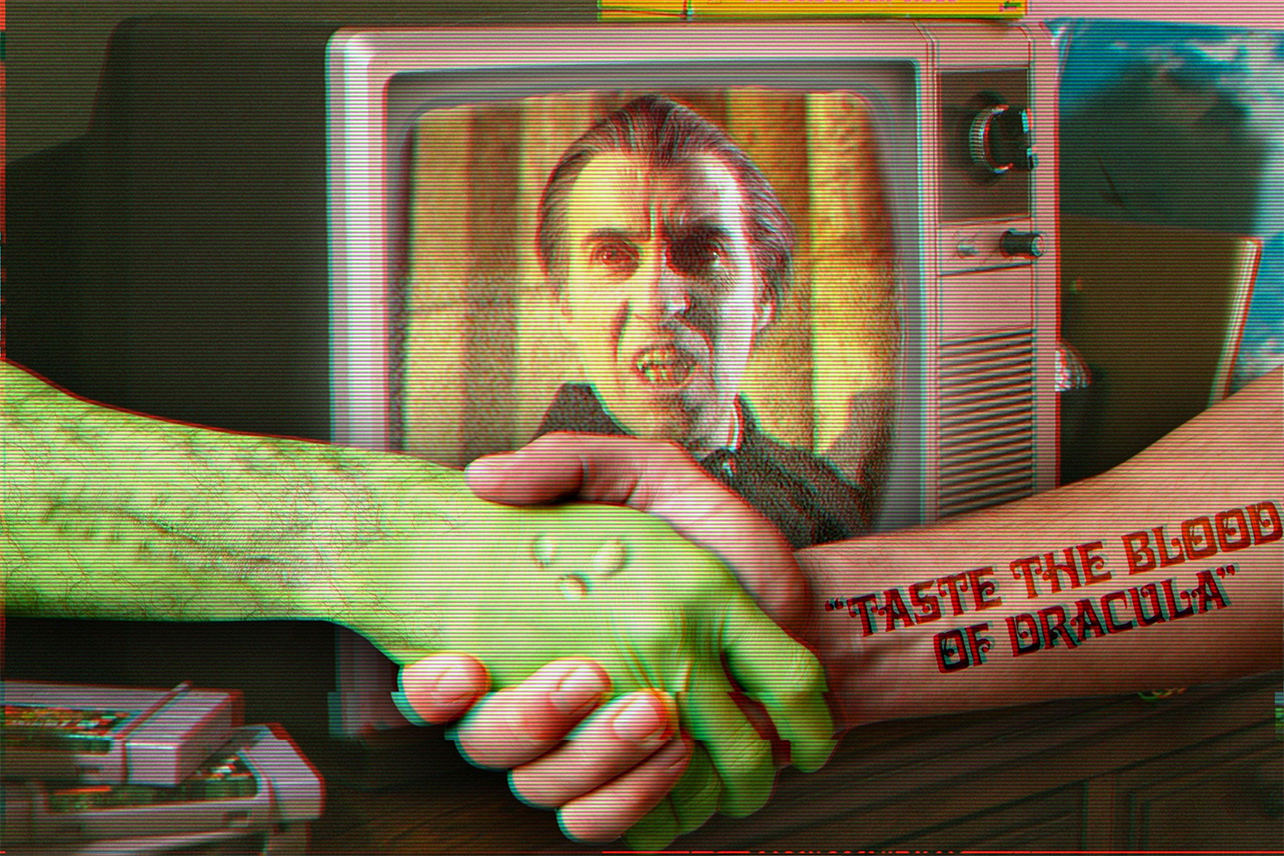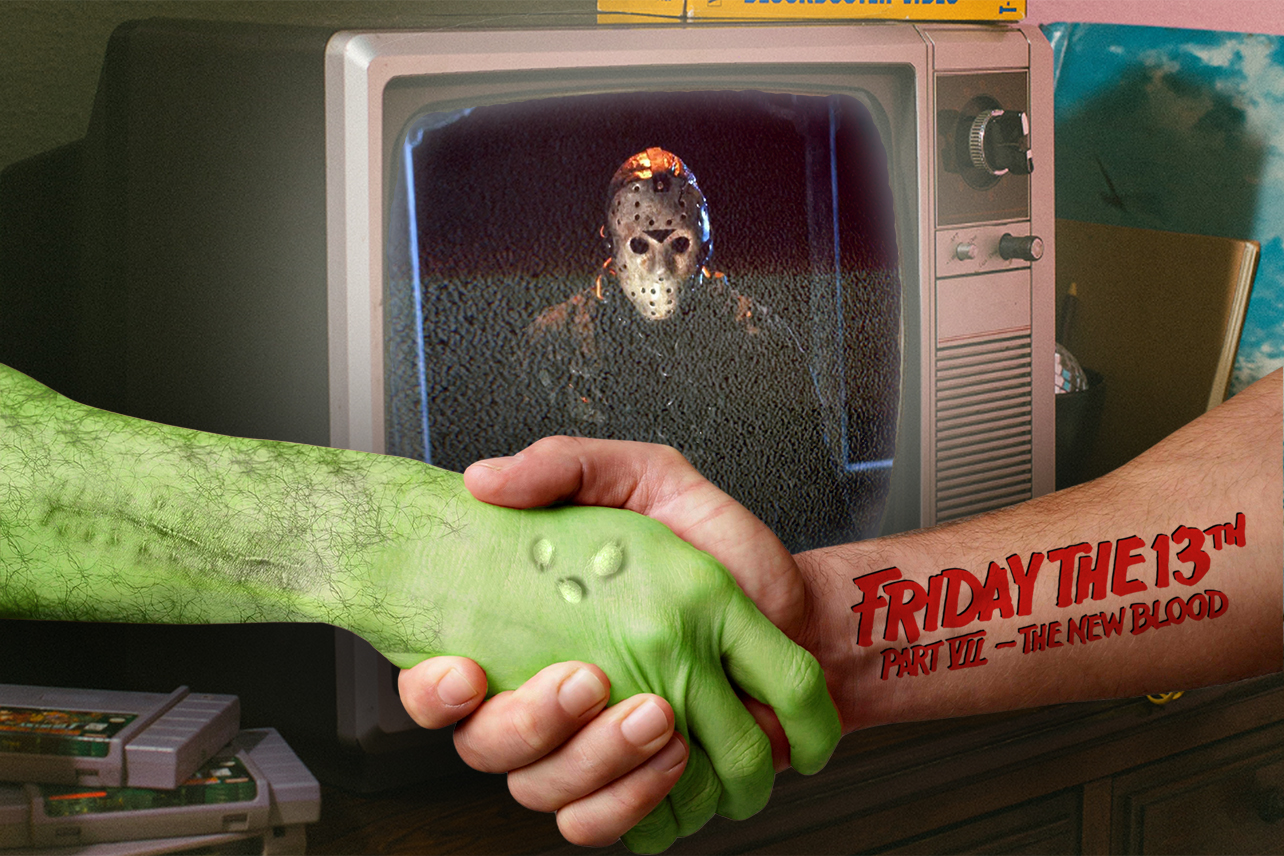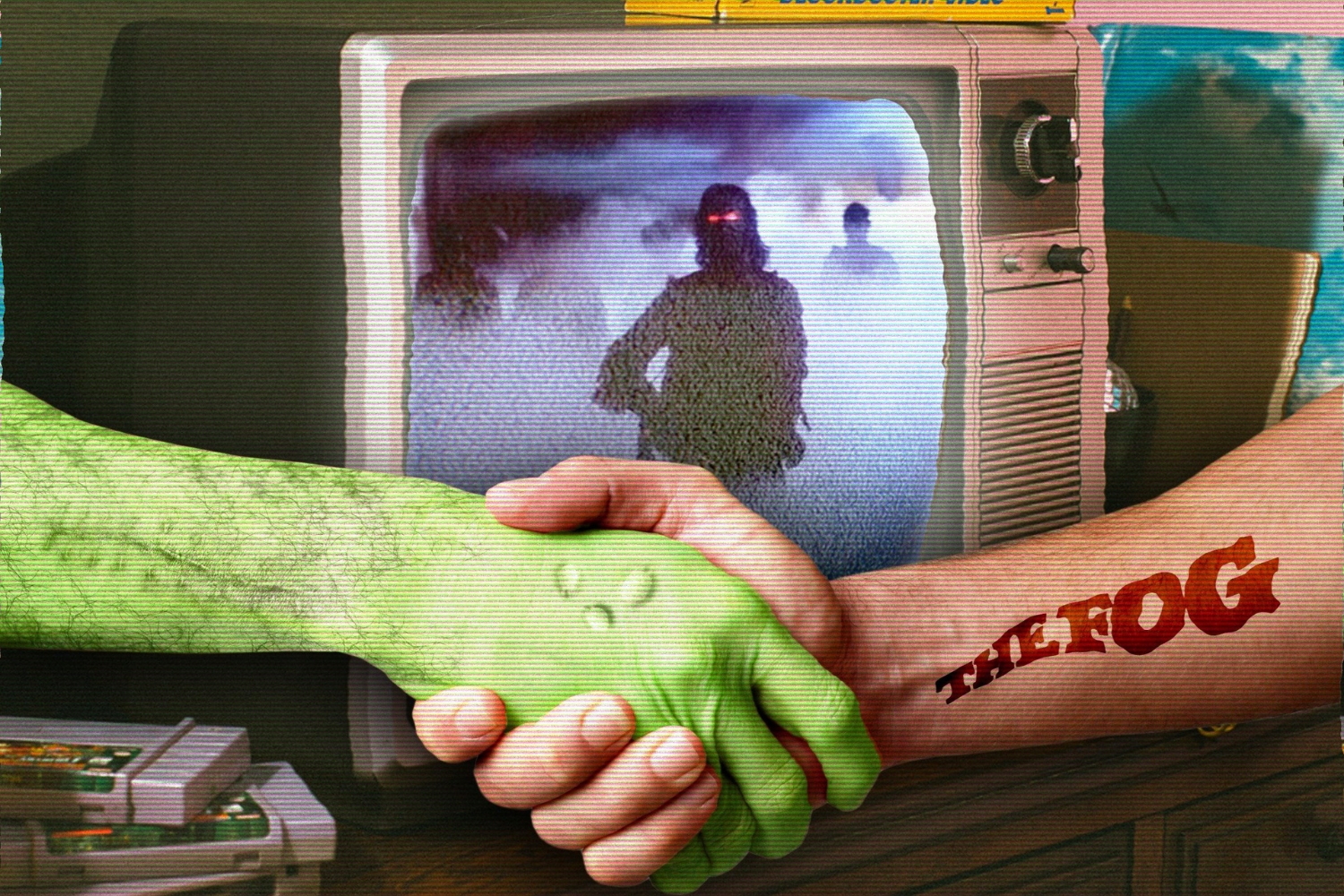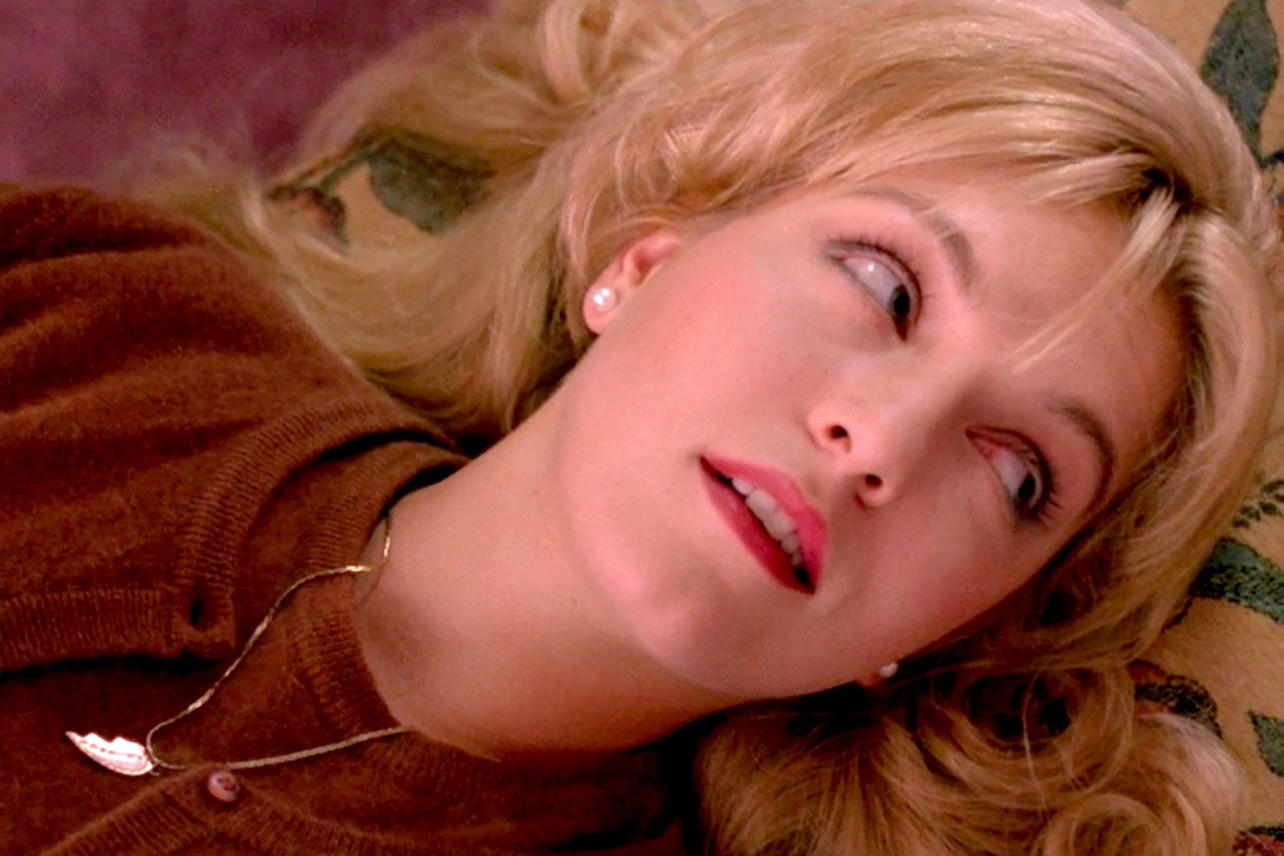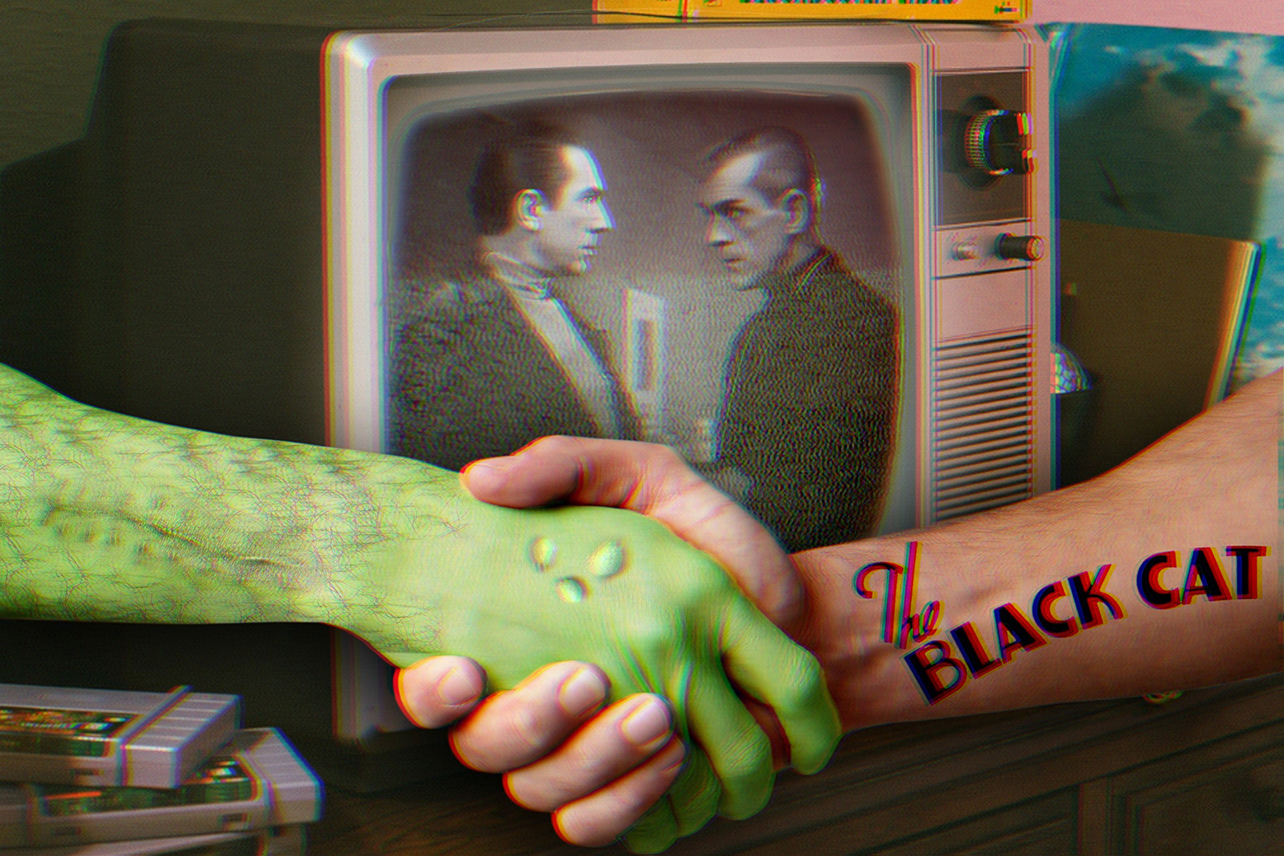Welcome to Horror Secret Handshakes, a monthly column spotlighting horror stories off the beaten path that serve as an instant vibe check with new friends, acquaintances, and fellow fans. If you both know the story, you feel the bond.
I'm part of a long line of many, many horror fans who've had that one magical season in which we marathoned through Christopher Lee's Dracula films. As a result I'm one of many, many horror fans who considers Lee to be our finest cinematic Dracula.
There's something in his presence that just fits the Count perfectly, particularly for the garish Technicolor epics Hammer released in the 1950s, '60s, and '70s. He was capable of immense gravitas, but also a visceral intensity. While he never did wild, shapeshifting things like certain other big-screen Draculas, there was always something feral lurking beneath the surface. He's the best and I love him.
But which of Hammer's Lee-starring Dracula films is actually the best? They each touch on a different flavor of the character, from the original Horror of Dracula's potent sensuality to the near-parody of Dracula A.D. 1972. In some films he's almost silent, in others he speaks constantly, so it really just depends what you're in the mood for. In my case, though, it never got better than a single film which lives up perfectly to its evocative title.
In 1970's Taste the Blood of Dracula, Lee returns for the fourth time as The Count, and for the first half of the film he's, as the title suggests, really only present through his blood. The opening scene kills Dracula off (again), leaving only traces of his body, including a small amount of dried blood that an enterprising bystander captures in a vial.
Right away, you can see why I love this, right? Or at least, if you're part of this particular film's secret handshake crew, you can. It's a film with powdered Dracula blood in it, for God's sake, and that's amazing. You can do all sorts of things with powdered Dracula blood. You can snort it, put it in a shaker and dispense it on your eggs in the morning, use it as a makeup finisher, whatever you like. But in this particular case, a group of aristocratic men get their hands on the blood and decide to rehydrate and, you guessed it, taste it.
Or at least, one of them does — and one is all it takes. Pretty soon his body is gone, replaced with a resurrected Dracula who sets out to track down each of the other men involved in this blood-sommelier cabal and ruin their lives. This could just mean catching them all and ripping their heads off, but just as John Elder's script wants to do something different with how Dracula reappears, the film also wants to do something different with Dracula's machinations. So, he gets at them through their families, corrupting their promising young daughters to his cause and slowly expanding his vampiric web.
I'm being deliberately vague about much of the plot and character here because, if you haven't seen this movie, I really want you to go check it out. It's got all the blood and heaving corseted bosoms and vampiric hissing you'd want from a Hammer film, which makes it great for a fun Halloween-season (or any season, really), watch. But there's something else lurking in Taste the Blood of Dracula that sets it apart from Hammer's other adventures with the monster, something I still think about.
The men who gather together to acquire and then drink Dracula's dried blood are all men of means, of reputation, of status. They lie to their wives about their nighttime adventures, hitting up local brothels and essentially forming their own little hellfire club, only to find that their sojourns into the darker mysteries of the world get them in mortal trouble. This is important because Dracula, especially as Bram Stoker originally envisioned the story, is in part a story of old-world aristocracy quite literally bleeding the enlightened, more equitable new world dry. Dracula's privilege as a wealthy aristocrat who hides his true intentions behind charm and money are quite clear, and they've been passed along to many different adaptations, including Hammer's.
What Taste the Blood does, then, is subvert this idea, making Dracula's fellow aristocrats his victims and playthings. These are men who view themselves as above natural and written laws, able to indulge themselves in pleasures of the flesh while still retaining their veneer of respectability in polite English society. Why shouldn't they be able to play around with Dracula's blood? It's only fair, right? Well, Dracula has thoughts about that, and on top of everything else that makes it entertaining, Taste the Blood of Dracula becomes a very fun Eat the Rich movie for everyone's favorite vampire.
If you haven't already, consider supporting worker-owned media by subscribing to Pop Heist. We are ad-free and operating outside the algorithm, so all dollars go directly to paying the staff members and writers who make articles like this one possible.
